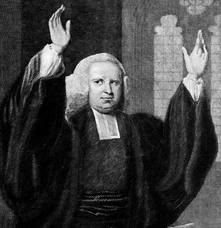Update: New developments in the Mefferd-Driscoll storyline can be found over at Warren Throckmorton’s blog post, “Janet Mefferd Removes Evidence Relating to Charges of Plagiarism Against Mark Driscoll; Apologizes to Audience.” Updated 12/4/13 @ 5:14 pm EST
The recent dust-up within evangelical circles over accusations of plagiarism highlights one of the problems with the personality-based leadership that encompasses most of American evangelicalism.
For those of you unfamiliar with the hullabaloo, Tyndale House recently released A Call to Resurgence: Will Christianity Have a Funeral or a Future? by Mark Driscoll, the ever-controversial pastor of Mars Hill Church, Seattle. Evidently, a good chunk of the book bears a strong resemblance to the work of Peter Jones, scholar-in-residence at Westminster Seminary California and the director of truthXchange, a think tank dedicated to helping evangelicals “recognize and effectively respond to the rising tide of neopaganism.”* Jones and Driscoll are also close friends, and Driscoll consistently credits Jones with teaching him a great deal–apparently not in A Call to Resurgence, however. Evidently, Driscoll gives one citation for fourteen pages of information drawn from Jones’ work. In an interview ostensibly scheduled to discuss the content of the book, Janet Mefferd confronted Driscoll on her nationally syndicated radio talk show, accusing him of plagiarism and a lack of integrity. (You can listen to the interview here and read about the debate over whether or not Driscoll hung up on Mefferd here.)
Regardless of how this whole debacle turns out, it demarcates the manner in which the evangelical embrace of personality-driven leadership creates problems the movement cannot overcome.

Throughout its history, evangelicalism has consistently empowered dynamic leaders. Dating back to its inception in the colonial period, George Whitefield’s itinerant ministry blossomed both as a result of his skill in promoting his ministry and his ability to connect with auditors in a manner that transcended most other preachers of his day. This popular appeal marked a “new model of leadership” in Christian circles that circumvented both established ecclesiastical patterns and ministerial norms.** In the wake of the Awakening, the ability to connect with and directly appeal to the people became a hallmark of evangelical leadership, particular in the religious marketplace of America.
In the antebellum period, Charles Finney and Phoebe Palmer gathered followers through personal charisma and dynamism. After the Civil War, D. L. Moody did the same, uniting many evangelical Protestants with his winsome personality and broad evangelical message. In the middle of the twentieth century, the ministry of Billy Graham demonstrated that this trend continued. Today, that model of evangelical leadership endures. Pastors and laypeople alike are enamored with John Piper, Rick Warren, Francis Chan, Rachael Held Evans, Rob Bell, and Mark Driscoll. Social media has only exacerbated personality-driven leadership as individuals can friend, follow, and subscribe to a constant stream of thought-forming and ministry-shaping information that comes via Facebook, Twitter, and blogs. As a result, acolytes consume a steady diet of material from their favorite evangelical leader (or his/her assistants) increasing affection, loyalty, and commitment. In the last century, it took a trip to the library to find out what Billy Graham thought about a topic. Today, David Platt’s opinions stream to my phone and are available for me even before I know I want them.
Ironically, all this only increases the “tribalism” that concerns Driscoll. Evangelical responses to Mefferd-Driscoll story are all-too-predictable. Fans of Driscoll–who likely follow him on Twitter, subscribe to his sermons on iTunes, and read his blog daily–have defended him, arguing that a single-citation suffices, or that Driscoll has a “photographic” memory, or that perhaps ghostwriting is to blame. Others, who are not fans of Driscoll, see this as confirmation of Driscoll’s rascality–his true colors finally coming through.

Because of the personality-driven leadership inherent in contemporary evangelicalism, the tribalism it nurtures, and the reality that most of American evangelicalism subsists in some variation of the free church tradition, the final outcome of this story is clear. There is no authority that can adjudicate this matter other than the authority upon which both Driscoll and Mefferd have built their ministries: evangelical popular opinion. (Recalling Jimmy Swaggart’s refusal to abide by his church’s disciplinary actions, it is clear that even in cases where such authority does exists, popular appeal often trumps that authority.) Thus, regardless of whether or not Mark Driscoll truly plagiarized in A Call to Resurgence(and other books) or whether Janet Mefferd lied about Driscoll hanging up, their tribes will defend them to the end.
This is the troubling reality of the personality-based leadership that encompasses much of American evangelicalism. Often, charisma and dynamic communication skills trump character and integrity as popular appeal wins the day. And for those of us who wish it were otherwise, there is no court of appeal with the authority to hear our case. Replete with positives, this remains one of the great weaknesses of contemporary evangelicalism.
Citations (of course):
* “Vision” at http://truthxchange.com/about/vision/. Last accessed December 3, 2013.
** Mark A. Noll, A History of Christianity in the United States and Canada (Grand Rapids: Eerdmans, 1992), 112.












